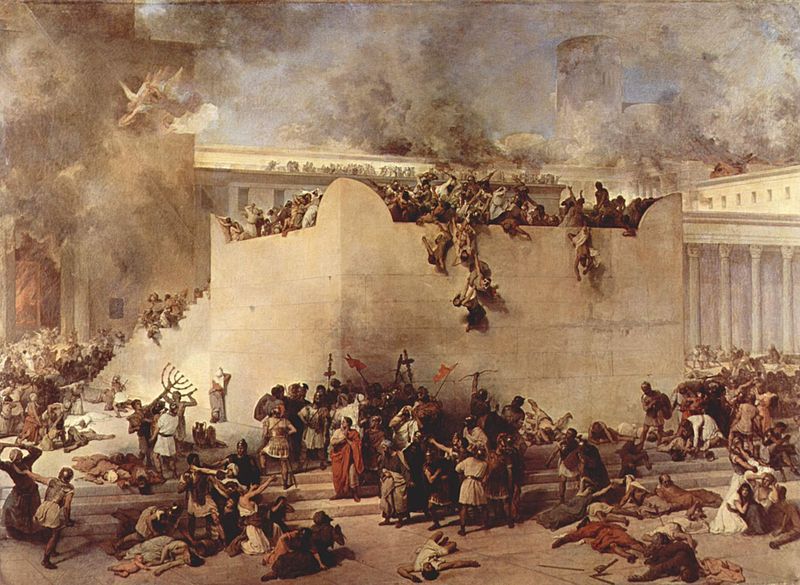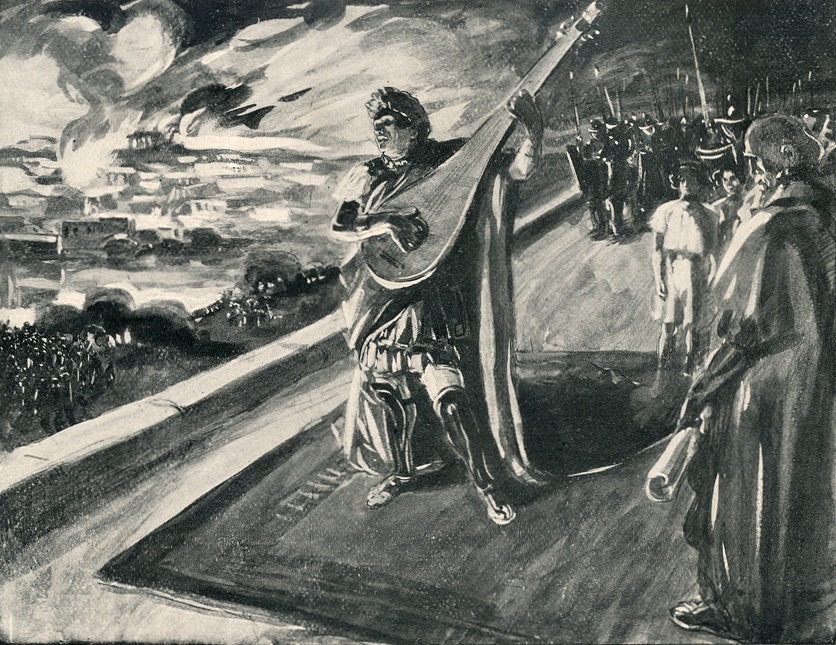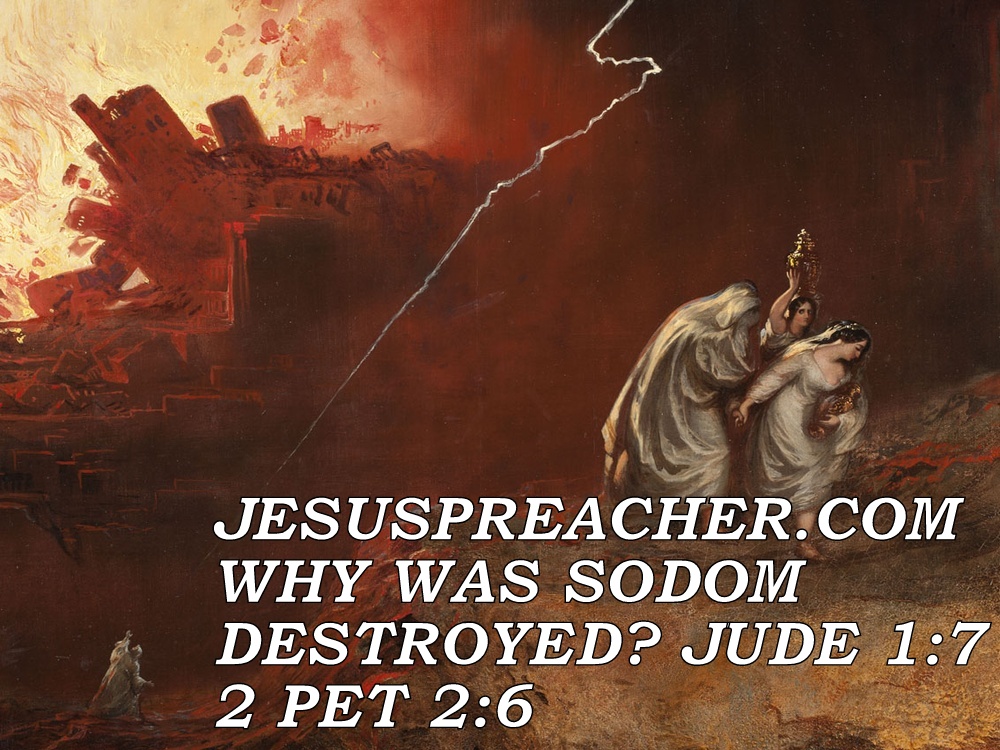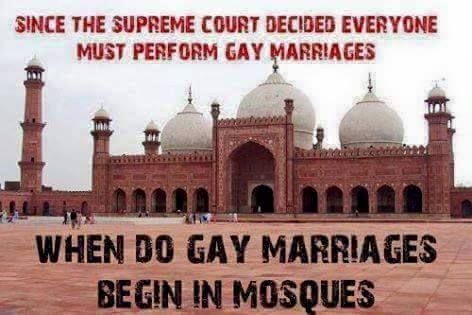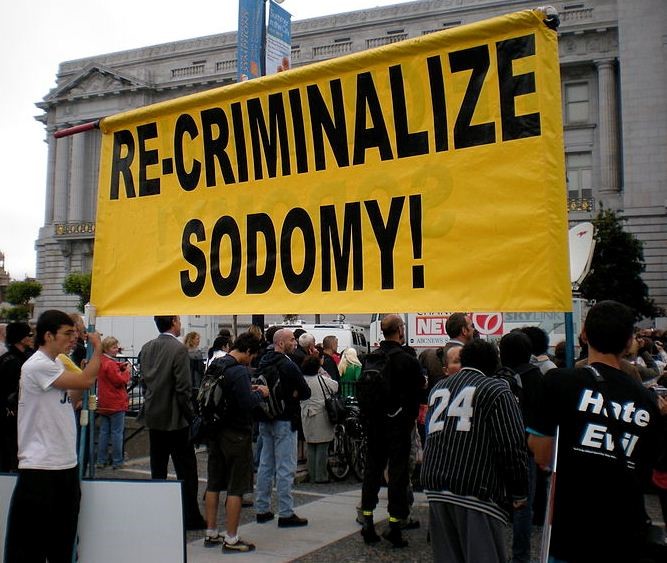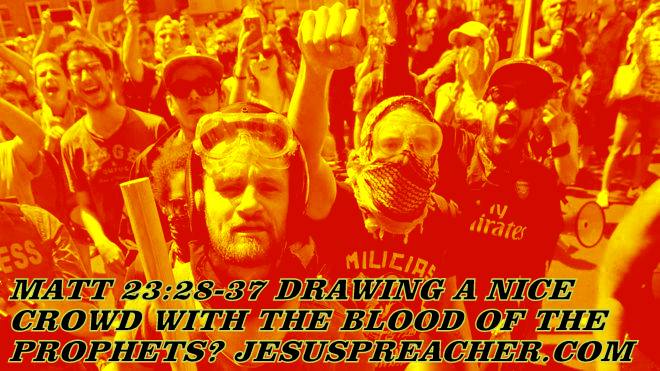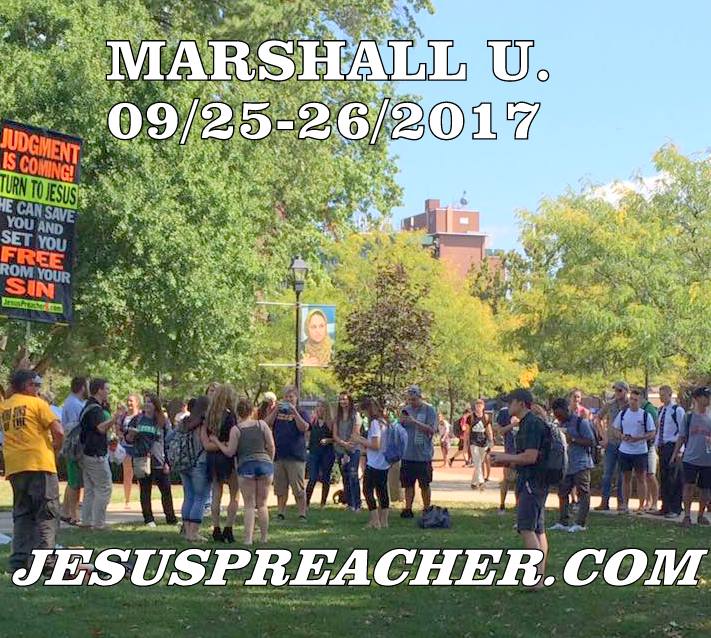Psalm 2:1-5
Why do the heathen rage, and the people imagine a vain thing? 2 The kings of the earth set themselves, and the rulers take counsel together, against the Lord, and against his anointed, saying, 3 Let us break their bands asunder, and cast away their cords from us. 4 He that sitteth in the heavens shall laugh: the Lord shall have them in derision. 5 Then shall he speak unto them in his wrath, and vex them in his sore displeasure.
Introduction by John McGlone Nov 22, 2018
On this thanksgiving day I want to express that I am so thankful for Jesus Christ who saved me from His judgment, my life of sin, so that I may bring Him all the glory He so richly deserves. I am also thankful for our family, our friends, and even our enemies whom God will use to teach us many things in the years to come.
I have prayed for many years to get a really good historical handle on eschatology which was cogent and could be understood by scholar and layman alike. I think I have finally stumbled across something which really makes good sense and helps to explain a nagging philosophical problem I had with many descriptions of Satan from the Bible. These characterizations of the great dragon in Scripture describe earthly kings which transition into the prince of the power of the air, Satan. I will let the writing speak for itself as it is very well done and very insightful. This volume by Br. Peter Goodgame is the seventh in the series. I will warn you that volume one was very dry to me personally and I almost gave up on the read. In fact, I would recommend you start with volume seven and then head back to the beginning.
by Peter Goodgame
The Seven Kings of Satan
We will now attempt to identify the Seven Kings of Satan as they have appeared throughout history. That they are Satanic is evident by the fact that they are initially presented as the seven heads of the dragon in Revelation 12, who is identified as Satan the “serpent of old” in verse nine. They can also be identified by their antagonistic relationship to the God of Israel because in Revelation 13:2 they are said to have “blasphemous names.” They serve Satan and they oppose God and the people who serve Him.
In Daniel 12:1 there is a passage that may help to explain the time frame that we are dealing with in our search for these seven kings. The passage refers to the “time of distress” associated with the apocalypse and the end of the age. Once again, it is an angel that gives Daniel the message, and he says,
“There will be a time of distress such as has not happened from the beginning of nations until then.”

The beginning of nations, as we explained in Part Six, was associated with the Tower of Babel event. It was a separation based on language, but it also involved the handing over of these seventy nations into the hands of the seventy top-ranking fallen angels. This event marked a spiritual transition, and the earth and its nations were given into the spiritual authority of the fallen angels and to Satan their most powerful leader. Daniel was told that the Apocalypse would be the most terrible time of distress from “the beginning of nations” until the end of the Age. In Matthew 24:21 Jesus Himself makes a similar statement,
“For then there will be great distress, unequaled from the beginning of the world until now—and never to be equaled again.”
The word that is translated as “world” is the Greek word kosmos. In the Gospel of John (12:31-32) after predicting His own death, Jesus explained what the “end of the world” would involve: “Now is the time for judgment on this world (kosmos); now the prince of this world (kosmos) will be driven out. But I, when I am lifted up from the earth, will draw all men to myself.” In John 16:11 Jesus looked forward to the effects of His death and explained that “the prince of this kosmos now stands condemned.”
The disciples wondered about the events that would happen at the time of the end and they asked Jesus (Matthew 24:3), “Tell us, when will this happen, and what will be the sign of your coming and the end of the age (Aion)?” After His death and resurrection Jesus ascended into heaven, leaving His disciples with encouraging words (Matthew 28:30), “And surely I am with you always, to the very end of the age (Aion).” Concerning the nature of this present Aion, or Age, the Apostle Paul refers to Satan as the “God of this Aion” (2 Corinthians 4:4), saying that he is the deceiver that keeps unbelievers from accepting the Gospel.
This current Age is the Age during which the fallen angels (the Kosmokrators), led by Satan their prince, rule over a fallen earth that is inhabited by fallen human beings. It began as a result of the Tower of Babel and it will end with the Second Coming of Jesus Christ, who will either reward or punish all human beings and the fallen angels, and cleanse and renovate the earth.
Nimrod
This Age began because of the conquests and rebellious actions of Nimrod, and so it makes perfect sense to conclude that Nimrod should be identified as the very first of Satan’s seven kings. He ruthlessly conquered the known world, he attempted to rebuild the city of Eridu, the pre-flood capital of the god Enki, and he also began to build the Tower of Babel as a means to resist the divine command to spread out and “fill the earth.” He is the first of the seven kings, and he will also be the last to appear when he comes again and rules as the eighth king. The Antichrist is the “first and the last” to rule over this particular fallen Age, but Jesus Christ is the “First and the Last” of all Creation, and the Ruler of all Ages to come.
The first of Satan’s seven kings is the most important to identify, but thankfully he is also the easiest to identify. We will continue identifying the other six kings, but with them the facts are not always so clear and one or two of the names may be based on conjecture and logical speculation. Our final list will be complete but it may not be 100% accurate, because much more scholarship on this subject can and should be done.
Pharaoh of Egypt
The second king is most likely either the king of Egypt that attempted to kill all male Hebrew children born at the time of the birth of Moses, or perhaps rather the Pharaoh who resisted Moses at the time of the Exodus who was drowned in the Red Sea. An Egyptian identity for the second king makes sense because it was in the land of Egypt that Satan was able to perfect his own religion and create his most lasting empire, and it was in Egypt where the body of Nimrod, known to the Egyptians as Osiris, was laid to rest.
 Biblical scholars have explored the idea that the Ten Plagues that forced Pharaoh to release the Hebrews were structured as Divine repudiations of the ten primary Egyptian gods, with the final plague of the death of the first-born aimed against the cult of Osiris, the cult most-closely associated with the Egyptian monarchy itself. This possibility is supported by the fact that Osiris is repeatedly identified as the “first-born son of Geb” throughout the Egyptian Pyramid Texts. In Egyptian myth the god Geb was understood to represent the earth, which is odd because in every other pagan culture the earth is worshiped in feminine form as the Mother Goddess. In Plutarch’s retelling of the legend of Isis and Osiris Plutarch identifies Geb as Kronos, who was in turn understood by classical scholars to be the Greek form of the Mesopotamian god Enki, whose name meant “Lord of the Earth.”
Biblical scholars have explored the idea that the Ten Plagues that forced Pharaoh to release the Hebrews were structured as Divine repudiations of the ten primary Egyptian gods, with the final plague of the death of the first-born aimed against the cult of Osiris, the cult most-closely associated with the Egyptian monarchy itself. This possibility is supported by the fact that Osiris is repeatedly identified as the “first-born son of Geb” throughout the Egyptian Pyramid Texts. In Egyptian myth the god Geb was understood to represent the earth, which is odd because in every other pagan culture the earth is worshiped in feminine form as the Mother Goddess. In Plutarch’s retelling of the legend of Isis and Osiris Plutarch identifies Geb as Kronos, who was in turn understood by classical scholars to be the Greek form of the Mesopotamian god Enki, whose name meant “Lord of the Earth.”
The Greek historian Diodorus Siculus (c.90-30 BC) gives an account of pillars that were found in Arabia that were erected as memorials to Isis and Osiris. He writes that the pillar of Osiris contained the following inscription (which also provides evidence that Osiris was the legendary conqueror Nimrod):
“My father is Kronos, the youngest of all the gods.
I am Osiris the king, who led my army all over the earth
to the uninhabited districts of India and those that lie to the North,
to the source of the river Ister, yea, everywhere, even to the Ocean.
I am the eldest son of Kronos.
Child of the noble and beautiful egg, I was born an offspring congenital with day.
No place is there in the whole world, whereinto I have not been,
conferring on all the benefits whereof I have been the inventor.” [1]
It is very ironic then, that it was from Egypt that the small and insignificant tribe of the twelve sons of Jacob was able to emerge as the Nation of Israel, symbolized in Revelation as the Woman who gave birth to the first-born Son of the Creator of the universe, through whom the world has been redeemed.
Sennacherib of Assyria
The third Satanic king on our list, who must certainly be included somewhere, is King Sennacherib of Assyria. The story of his campaign against King Hezekiah and against Jerusalem is given in 2 Kings 18-19, 2 Chronicles 32, and Isaiah 36-37. It is an amazing story of the effectiveness of prayer and of the mercy, justice and power of God. When King Hezekiah resisted Sennacherib’s demands Sennacherib responded through his messengers with ridicule and blasphemy against the God of Israel. King Hezekiah responded to Sennacherib’s insults by going to the Temple to pray, and after hearing Hezekiah’s prayers God responded through the prophet Isaiah. The story unfolds in Isaiah 37:
“Then Isaiah son of Amoz sent a message to Hezekiah: This is what the LORD, the God of Israel, says: ‘Because you have prayed to me concerning Sennacherib king of Assyria,’ this is the word the LORD has spoken against him:
‘The Virgin Daughter of Zion despises and mocks you. The Daughter of Jerusalem tosses her head as you flee. Who is it you have insulted and blasphemed? Against whom have you raised your voice and lifted your eyes in pride? Against the Holy One of Israel! By your messengers you have heaped insults on the Lord. And you have said, ‘With my many chariots I have ascended the heights of the mountains, the utmost heights of Lebanon. I have cut down its tallest cedars, the choicest of its pines. I have reached its remotest heights, the finest of its forests…’
But I know where you stay and when you come and go and how you rage against me. Because you rage against me and because your insolence has reached my ears, I will put my hook in your nose and my bit in your mouth, and I will make you return by the way you came…’
Therefore this is what the LORD says concerning the king of Assyria:
‘He will not enter this city or shoot an arrow here. He will not come before it with shield or build a siege ramp against it. By the way that he came he will return; he will not enter this city,’ declares the LORD. ‘I will defend this city and save it, for my sake and for the sake of David my servant!’
Then the angel of the LORD went out and put to death a hundred and eighty-five thousand men in the Assyrian camp. When the people got up the next morning—there were all the dead bodies. So Sennacherib king of Assyria broke camp and withdrew. He returned to Nineveh and stayed there.”
King Sennacherib returned to Ninevah where he went to the temple of the god Nisroch to find out what had gone wrong. While he was worshiping there he was murdered in cold blood by two of his own sons. The possibility that Sennacherib was one of Satan’s seven kings is supported by Isaiah’s description of him in chapter fourteen:
“On the day the LORD gives you relief from suffering and turmoil and cruel bondage, you will take up this taunt against the king of Babylon:
‘How the oppressor has come to an end! How his fury has ended! The LORD has broken the rod of the wicked, the scepter of the rulers, which in anger struck down peoples with unceasing blows, and in fury subdued nations with relentless aggression. All the lands are at rest and at peace; they break into singing. Even the pine trees and the cedars of Lebanon exult over you and say, “Now that you have been laid low, no woodsman comes to cut us down.”
The grave below is all astir to meet you at your coming; it rouses the spirits of the departed to greet you—all those who were leaders in the world; it makes them rise from their thrones—all those who were kings over the nations. They will all respond, they will say to you, “You also have become weak, as we are; you have become like us.”
All your pomp has been brought down to the grave, along with the noise of your harps; maggots are spread out beneath you and worms cover you. How you have fallen from heaven, O morning star, son of the dawn! You have been cast down to the earth, you who once laid low the nations! You said in your heart,
“I will ascend to heaven; I will raise my throne above the stars of God; I will sit enthroned on the mount of assembly, on the utmost heights of the sacred mountain. I will ascend above the tops of the clouds; I will make myself like the Most High.”
But you are brought down to the grave, to the depths of the pit.” (Isaiah 14:3-15)
Biblical scholars agree that this passage refers to Sennacherib who conquered and ruled Babylon. This conclusion is supported by the statement of Sennacherib in Isaiah 37 in which he boasts of plundering the forests of Lebanon, which connects with the taunts against Sennacherib in Isaiah 14 from those very same forests. However the most provocative portion of Isaiah 14 is where the text transitions seamlessly from a description of the human king to a description of a figure that can only be Satan, or Lucifer, as some texts say. This transition only makes sense once it is understood that Satan himself became manifested on earth through Sennacherib. In other words, Sennacherib was possessed by Satan and should be viewed as one of the seven kings of Satan.
Ithobaal II of Tyre
The fourth king of Satan is the King of Tyre, the powerful Phoenician city-state that dominated trade in the Mediterranean. This king, who was most likely Ithobaal II, was accused of pride and blasphemy by the prophet Ezekiel:
“The word of the LORD came to me: “Son of man, say to the ruler of Tyre, This is what the Sovereign LORD says: ‘In the pride of your heart you say, “I am a god; I sit on the throne of a god in the heart of the seas.” But you are a man and not a god, though you think you are as wise as a god…
Therefore this is what the Sovereign LORD says: ‘Because you think you are wise, as wise as a god, I am going to bring foreigners against you, the most ruthless of nations; they will draw their swords against your beauty and wisdom and pierce your shining splendor…
Will you then say, “I am a god,” in the presence of those who kill you? You will be but a man, not a god, in the hands of those who slay you. You will die the death of the uncircumcised at the hands of foreigners. I have spoken, declares the Sovereign LORD.’
‘…This is what the Sovereign LORD says: You were the model of perfection, full of wisdom and perfect in beauty. You were in Eden, the garden of God… You were anointed as a guardian cherub, for so I ordained you. You were on the holy mount of God; you walked among the fiery stones. You were blameless in your ways from the day you were created till wickedness was found in you. Through your widespread trade you were filled with violence, and you sinned. So I drove you in disgrace from the mount of God, and I expelled you, O guardian cherub, from among the fiery stones. Your heart became proud on account of your beauty, and you corrupted your wisdom because of your splendor. So I threw you to the earth; I made a spectacle of you before kings.
By your many sins and dishonest trade you have desecrated your sanctuaries. So I made a fire come out from you, and it consumed you, and I reduced you to ashes on the ground in the sight of all who were watching. All the nations who knew you are appalled at you; you have come to a horrible end and will be no more.'” (Ezekiel 28:1-19)
This passage is very similar to Isaiah’s description of Sennacherib in that it also contains a description of a human king that transitions into a description of Satan, who was the perfectly-created guardian angel of the Garden of Eden, who fell from his exalted position because of his pride. Like the case of Sennacherib, these references imply that Ithobaal II, the King of Tyre, was possessed and controlled by Satan.
Tyre’s relationship with Israel was friendly under King Hiram during the reign of Solomon, but after that it degenerated quickly. The prophet Amos accused Tyre of taking Israelites as slaves and selling them to neighboring kingdoms, and of breaking their “covenant of brotherhood” (Amos 1:9-10). The relationship finally reached its lowest point during the time of Ezekiel who predicted God’s judgment upon Tyre (Ezekiel 26-28), which was fulfilled by the conquests of Nebuchadnezzar and Alexander the Great. Ithobaal II was eventually executed by Nebuchadnezzar after being captured and brought to Babylon.
Antiochus IV Epiphanes
The fifth of Satan’s seven kings can only be King Antiochus IV Epiphanes. His career was predicted in Daniel 11:21-35, where he is described as a contemptible and vile person, scheming and deceitful, psychotic and possibly insane, who would focus his rage against the Jews, against God, and against Jerusalem and the holy temple.
Antiochus obtained his throne in Syria by conspiring against the rightful heir and by flattering powerful allies. After he took power he waged war against Ptolemy VI of Egypt, and after striking a treaty with Ptolemy he brought his army into Palestine. He received word that the Jews were rejoicing because of false reports of his death, so he attacked Jerusalem, killing 40,000 and capturing another 40,000 as slaves. He reinstalled his puppet Menelaus as the Jewish high priest who continued Antiochus’ plan to Hellenize the Jews. After another unsuccessful campaign into Egypt Antiochus sent 22,000 troops into Jerusalem to aid Menelaus and to eradicate traditional Jewish worship. His forces attacked Jerusalem on the Sabbath and massacred many worshipers. Antiochus then entered the Temple and consecrated it to Jupiter (Zeus), setting up an idol and sacrificing a pig on the altar. He passed a law that outlawed the Jewish religion, and he killed and tortured the violators that were caught.
The career of Antiochus is typical of Satan’s kings. He was one of the greatest blasphemers against the God of Israel, and he minted coins that pictured himself with the inscription “Antiochus the Great, God Manifest.” He committed the greatest outrage possible against the Lord when he violated His sanctuary and erected a pagan idol within, followed by the sacrifice of an unclean beast on the altar. These acts were an “abomination” against the Lord that will be matched by the Antichrist when he sets up the “abomination of desolation” predicted by Jesus (Matthew 24:15), Paul (2 Thessalonians 2), and Revelation 13. Daniel’s description of Antiochus is similar to those given by Isaiah and Ezekiel for Sennacherib and Ithobaal II, because once again we find a passage that transitions from descriptions of the king into descriptions of another figure. In the case of Daniel, the descriptions of Antiochus lead directly into prophecies of the end-times Antichrist, beginning with Daniel 11:36.
The end came for Antiochus after his retinue was ambushed while plundering the temple of a goddess in Persia. Some accounts say that he was violently slain, while others say he died of a stomach ailment while in retreat. Given the trend followed by these kings it seems more likely that he died violently. In any case Antiochus must certainly be counted as one of Satan’s seven kings, and he completes our list of the first five that were predicted in Revelation 17:10 to “have fallen” at the time that the vision of Revelation was received.
Nero Caesar
 The sixth was a king that ruled at the very same time that John’s vision was received. To identify this king we must enter the scholarly debate on when exactly the book of Revelation was written. The modern consensus is that it was written near the end of the first century around 95 AD, but an older tradition holds that it was written around 64-68 AD during the Roman reign of the infamous Nero Caesar. The reasons for accepting such an early date for the writing of Revelation are numerous:
The sixth was a king that ruled at the very same time that John’s vision was received. To identify this king we must enter the scholarly debate on when exactly the book of Revelation was written. The modern consensus is that it was written near the end of the first century around 95 AD, but an older tradition holds that it was written around 64-68 AD during the Roman reign of the infamous Nero Caesar. The reasons for accepting such an early date for the writing of Revelation are numerous:
– The Church Father Clement of Alexandria asserted that all revelation ceased under Nero’s reign.
– The Muratorian canon (c. 170 AD) has John completing Revelation before Paul had written to seven different churches (Paul finished these writings in 67-68 AD).
– The Church Father Tertullian placed John’s banishment to Patmos at the same time as Peter and Paul’s martyrdom (67-68 AD).
– The Church Father Epiphanius (315-403 AD) twice stated that Revelation was written under Nero.
– The Syriac version of Revelation (6th century AD) begins with the heading, “written in Patmos, whither John was sent by Nero Caesar.”
– The Byzantine scholar Arethas, from the 9th century wrote, “When the Evangelist received these oracles, the destruction in which the Jews were involved was not yet inflicted by the Romans [70 AD].” [2]
The early date for the writing of Revelation is used by some scholars to support the absurd Preterist interpretation of Bible prophecy. An early date for the book of Revelation may support Preterist arguments, but it hardly proves them, and it can work just as well with literal and futurist interpretations of Revelation.
When we examine the life of Nero we find all of the elements necessary to include him on the list of Satan’s seven kings, and we uncover a tale of sex, violence, scandal and murder, that far exceeds anything an HBO script-writer could imagine.
Nero was born in 37 AD. His father was a wealthy Roman citizen and his mother, Agrippina, was the sister of the Emperor Caligula. Nero’s father died when he was three and at this time, out of a very reasonable fear of his sister, Caligula confiscated their wealth and banished Nero and Agrippina to a tiny island. After Caligula died and Claudius became Emperor of Rome Nero and his mother were freed and Agrippina quickly married another wealthy Roman, who died shortly thereafter, leaving another fortune to Agrippina. After Emperor Claudius executed his wife for scolding him in public he fell under the spell of Agrippina, whom he married and made Empress of Rome in 48 AD, which he lived (or rather died) to regret.
After becoming Empress, Agrippina manipulated Claudius into making Nero his legal heir, against the claims of his own son Britannicus. Nero’s position as heir to the throne was solidified when he married Octavia, the Emperor’s daughter (Nero’s legal sister). From this point the days of Claudius were numbered, and he died by assassination in 54 AD, from poisoning, which made Nero the Emperor of Rome.
As a young man Nero was tutored by the homosexual philosopher Seneca, who was actually one of the more rational Roman thinkers of his day. In the first few years of Nero’s reign it was Seneca who actually controlled the affairs of the Empire and he did an adequate job, despite the fact that he became a hated enemy of Agrippina. This time, however, the game was up for Agrippina, and Nero had his own mother executed in 59 AD. However, the stress in dealing with Nero became too much for Seneca, who retired as Nero’s advisor in 62 AD. From that point on the affairs of the Empire steadily degenerated. Nero went through a string of male and female lovers and focused on pursuing his entertainment career, imagining himself to be a great singer, poet and actor.
In 64 AD Nero moved forward on a plan to rebuild a section of the old city of Rome, and to rename it Neronia in honor of himself. A fire was set to aid in the demolition and to remove the unwanted occupants, but this fire soon raged out of control, destroying three and damaging seven of Rome’s fourteen districts. The fire was then blamed on the community of Christians that lived in Rome, and Nero found it convenient to vent his rage on the young sect that he passionately hated. The Roman historian Tacitus was a young eyewitness and he later recorded what happened in Book XV of his Annals,
“Therefore, to stop the rumor [that he had set Rome on fire], he [Emperor Nero] falsely charged with guilt, and punished with the most fearful tortures, the persons commonly called Christians, who were [generally] hated for their enormities. Christus, the founder of that name, was put to death as a criminal by Pontius Pilate, procurator of Judea, in the reign of Tiberius, but the pernicious superstition – repressed for a time, broke out yet again, not only through Judea, – where the mischief originated, but through the city of Rome also, whither all things horrible and disgraceful flow from all quarters, as to a common receptacle, and where they are encouraged. Accordingly first those were arrested who confessed they were Christians; next on their information, a vast multitude were convicted, not so much on the charge of burning the city, as of “hating the human race.”
In their very deaths they were made the subjects of sport: for they were covered with the hides of wild beasts, and worried to death by dogs, or nailed to crosses, or set fire to, and when the day waned, burned to serve for the evening lights. Nero offered his own garden players for the spectacle, and exhibited a Circensian game, indiscriminately mingling with the common people in the dress of a charioteer, or else standing in his chariot. For this cause a feeling of compassion arose towards the sufferers, though guilty and deserving of exemplary capital punishment, because they seemed not to be cut off for the public good, but were victims of the ferocity of one man.”
Nero’s reign was unique simply for the extent of his persecution of Christians. In 67 AD he executed Peter, and he even went so far as to execute Paul, a Roman citizen. Politically, Nero’s prestige was quickly expended. In 65 AD he faced down a political conspiracy that included his former mentor Seneca, and by 68 AD Nero faced a revolt that came from his generals in the provinces and from the Roman Senate. On June 9, after being abandoned by his guards and his palace attendants, Nero retreated from the soldiers that had been sent to arrest him and he fled to his room where he committed suicide.
Nero exhibited all of the traits and characteristics of a Satanically-possessed individual. He was arrogant and prideful, as well as paranoid and psychotic, and his rage, frustration, and cruelty was directed at God and the people of God. His actions focused on short-term goals and were ultimately destructive, both for himself and for Rome. Nero’s suicidal fate was basically the same as that suffered by Pharaoh of Egypt, who brought himself into the parted Red Sea, and the same as the final king on our list who we turn to next.
Adolf Hitler
After the persecution under Emperor Nero Christianity steadily gained power in Rome, despite scattered persecution and antagonism from various Emperors. Eventually Christianity became the official religion of Rome under Constantine in the fourth century, and the faith spread from its home in the Near East to become the dominant religion in Europe, Africa, and eventually throughout the world. Since that time Christianity has been the most powerful spiritual force on the planet, and during that time, up until the twentieth century, a significant threat to that power was never manifested in the life of a single man.
The seventh and final king is explained in Revelation as the king who “has not yet come; but when he does come, he must remain for a little while.” He was a king that would appear sometime in the future, and then his authority would last for only a short time. He would be the precursor of the Antichrist himself, and he would exhibit the very same traits as previous Satanic kings, such as pride, rage, paranoia, cruelty, and a passionate hatred of God and the people of God.
This predicted figure came to power in Germany in the 1930s and he ruled over a short-lived Empire the like of which had not been seen in Europe for almost two thousand years. Here is how one biographer introduces Adolf Hitler and the Third Reich:
“Why did a civilised nation of the twentieth century abruptly revert to barbarism? How could a shabby ex-dropout, so manifestly third-rate in all matters of the intellect, have achieved such unparalleled power? Why did the Germans come to venerate Hitler as a god? Why do he and his associates, Himmler, Goering, and Goebbels, still exert a mystique that is so conspicuously absent when we study Mussolini, Ciano and Starace, or Stalin, Molotov and Beria? Why does one feel that the Third Reich stood for a radically different kind of civilisation? Most fascinating of all, what drove Hitler, what motivated him, what went on in his mind that resulted in consequences of such magnitude?” [3]
According to this biographer, the answer to what drove Hitler can be found by examining Hitler’s relationship with the occult and his involvement in the dark arts of sorcery and spirit-possession. The author is qualified to explore this relationship because he is the late Gerald Suster, a former disciple of Golden Dawn adept Israel Regardie, who was himself the personal disciple and secretary of Aleister Crowley.
Suster’s biography is entitled Hitler: Black Magician and it documents Hitler’s involvement with groups and individuals who used pagan rituals to contact the spirit world. One of Hitler’s closest friends was a man by the name of Dietrich Eckart and he is a primary figure (according to Suster, Peter Levenda and Trevor Ravenscroft) involved in grooming Hitler for his Satanic role. Eckart’s influence over Hitler is proven by Hitler’s dedication that appears at the very end of Mein Kampf:
“And I want also to reckon among [Nazi heroes] that man, who, as one of the best, by words and by thoughts and finally by deeds, dedicated his life to the awakening of his, of our nation: Dietrich Eckart.”
Dietrich Eckart was a popular German author, poet, and editor of an influential newspaper. He was well connected with the financial world and he was a high-level initiate in the occult world. One of the greatest influences upon his life was the Gnostic mystic Helena Blavatsky, whose anti-Christian and anti-Semitic teachings came to permeate the Third Reich, as Levenda explains:
“It should be remembered that Blavatsky’s works—notably Isis Unveiled and The Secret Doctrine—appear to be the result of prodigious scholarship and were extremely convincing in their day. The rationale behind many later Nazi projects can be traced back…to ideas first popularized by Blavatsky. A caste system of races, the importance of ancient alphabets (notably the runes), the superiority of the Aryans (a white race with its origins in the Himalayas), an “initiated” version of of astrology and astronomy, the cosmic truths coded within pagan myths … all of these and more can be found both in Blavatsky and in the Nazi Party itself, specifically in the ideology of its Dark Creature, the SS. It was, after all, Blavatsky who pointed out the supreme occult significance of the swastika.” [4]
Eckart died in 1923, but for the three years previous to his death he was “Hitler’s constant companion and the man who helped propel him into the public spotlight.”[5] On his death bed Eckart penned the following words to a friend, which go far to explain the spiritual source of Hitler’s brief success:
“Follow Hitler! He will dance, but it is I who have called the tune. I have initiated him into the ‘Secret Doctrine,’ opened his centers in vision and given him the means to communicate with the Powers. Do not mourn for me: I shall have influenced history more than any other German.” [6]

Identifying Adolf Hitler as the seventh manifestation of the seven-headed dragon of the Apocalypse should not be viewed as questionable or controversial whatsoever. Hitler certainly exhibited the personal characteristics of a Satanically driven and possessed individual, and his passionate hatred of the Jews is very well documented. Unfortunately, the Christian Church in Germany was too timid and too deceived to challenge Hitler directly, but there were many individual Christians who did, such as Dietrich Bonhoeffer, who paid for his dedication to Christ with his life. Despite the fact that the organized Church in Germany worked with the Nazi Party, Hitler’s ultimate goal was to destroy Christianity. Suster offers the following quotes from Hitler to that effect:
“The religions are all alike, no matter what they call themselves. They have no future – certainly none for the Germans… Whether it is the Old Testament or the New it’s all the same old Jewish swindle… One is either a German or a Christian. You cannot be both… We need free men who feel and know that God is in themselves… The Ten Commandments have lost their validity… Our peasants have not forgotten their true religion. It still lives… The peasant will be told what the Church has destroyed for him: the whole secret knowledge of nature, of the divine, the shapeless, the daemonic… We shall wash off the Christian veneer and bring out a religion peculiar to our race…through the peasantry we shall really be able to destroy Christianity because there is in them a true religion rooted in nature and blood.” [7]
The First Seal of the Apocalypse
In the book of Revelation the breaking of the first Seal of the seven-sealed Scroll brings forth a figure that many Bible scholars have identified as the Antichrist. However, in the book Red Moon Rising – the Rapture and the Timeline of the Apocalypse the conclusion is reached that this figure is better understood as symbolizing the brief career of Satan’s seventh king—Adolf Hitler, rather than the eighth king who will “come up out of the Abyss”:
“I watched as the Lamb opened the first of the seven seals. Then I heard one of the four living creatures say in a voice like thunder, ‘Come!’ I looked, and there before me was a white horse! Its rider held a bow, and he was given a crown, and he rode out as a conqueror bent on conquest.” (Revelation 6:1-2)
This figure wears a crown, as do the seven kings of Satan in Revelation 12:3, he holds a weapon, and his primary purpose is that of conquest. The possibility that this figure represents Hitler is reinforced by what comes with the opening of the second Seal, which can easily be viewed as referring to World War II:
Excerpt from the blog Red Moon Rising.



